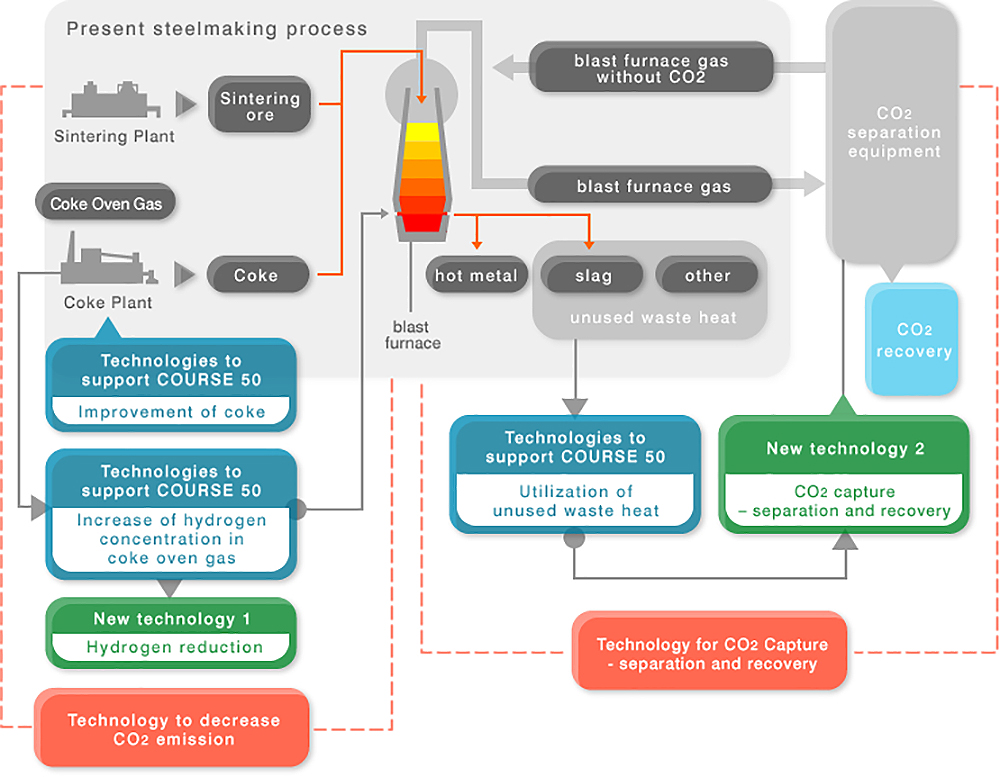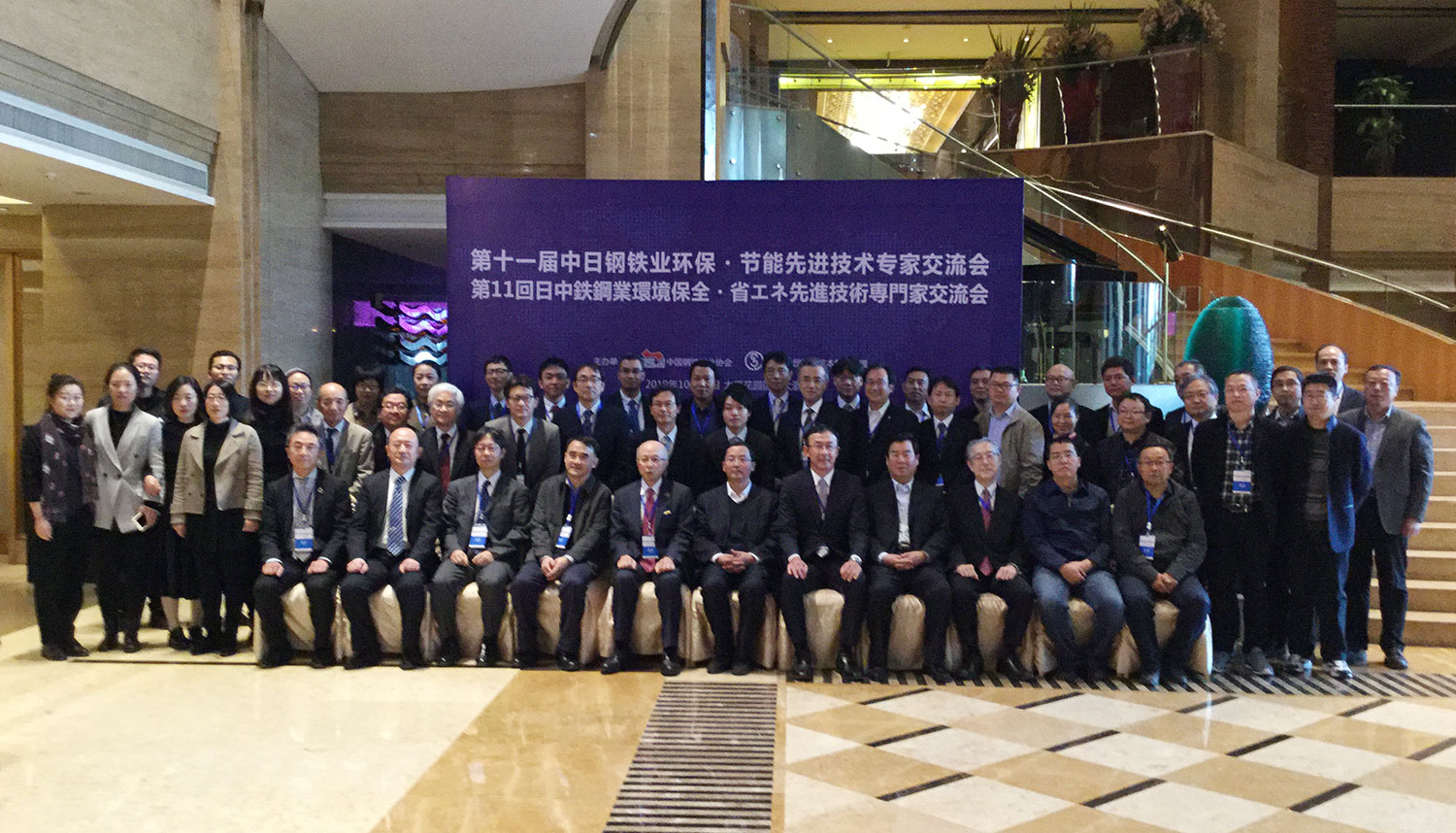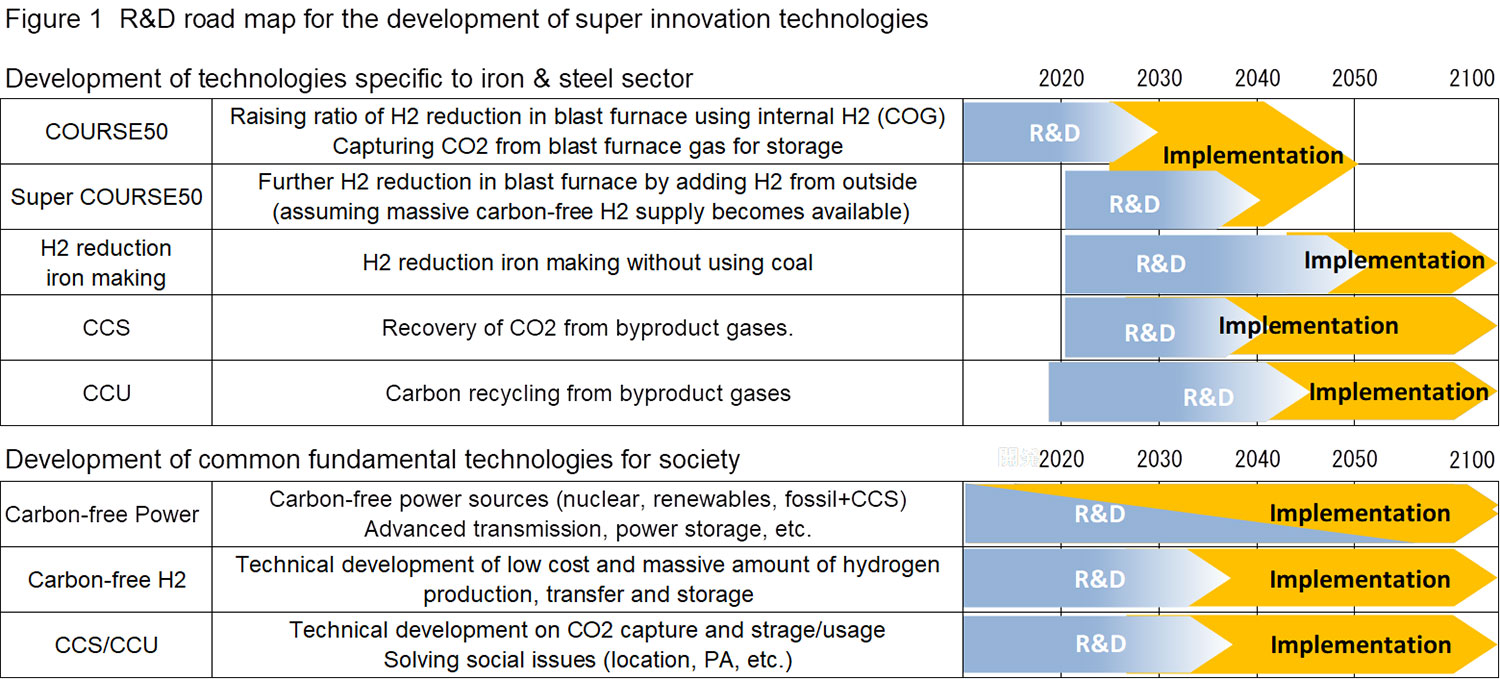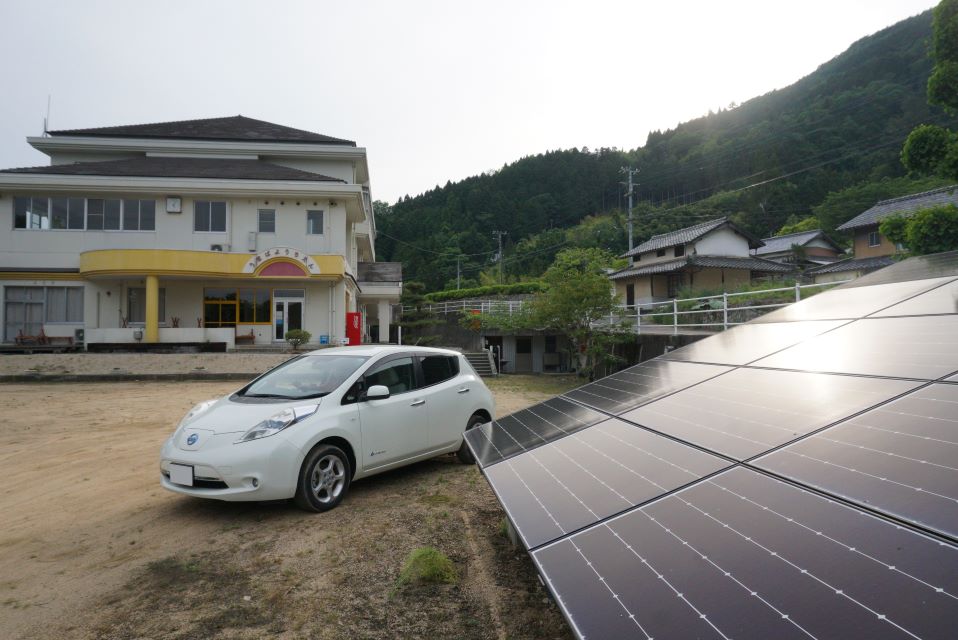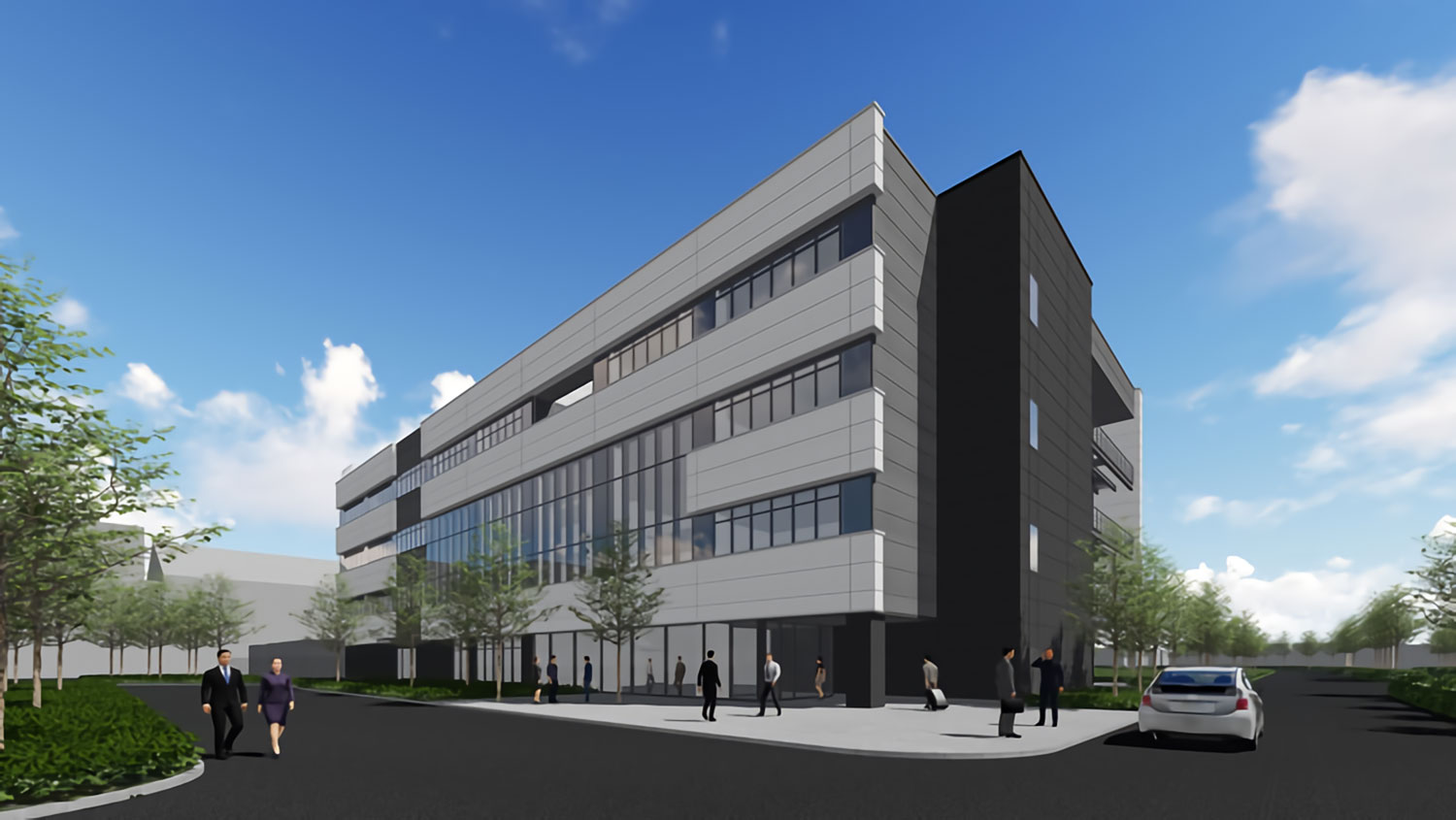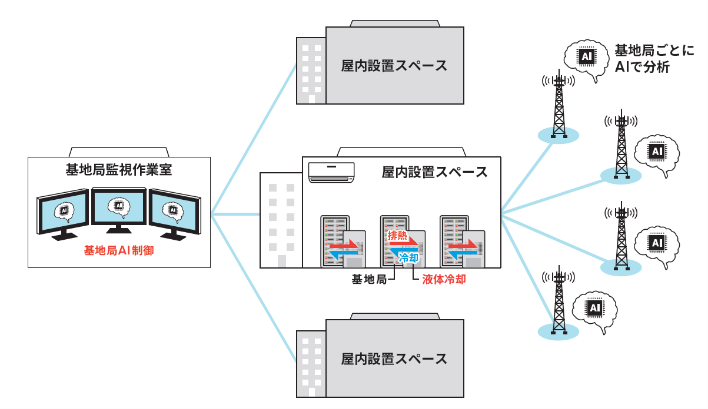Course 50 Project
The Japan Iron and Steel Federation
Outline
The steel industry in Japan has already achieved world-leading energy efficiency by making persistent energy-saving efforts, and through these has contributed to CO2 reduction as a global warming countermeasure. Technology development is the key to responding to requests for further reduction of CO2 emissions on a global scale, and drastic steps powered by innovative technologies are deemed indispensable in the long term. The “Cool Earth 50” initiative announced by Prime Minister Shinzo Abe in May 2007 proposed the achievement of compatibility between environmental protection and economic growth through the utilization of energy-saving technologies and the like. To accomplish this aim, the “CO2 Ultimate Reduction System for Cool Earth 50” (COURSE 50) initiative was established and positioned as an Innovative Technology Development scheme.
This project supported by the New Energy and Industrial Technology Development Organization (NEDO) is now in progress (Phase 1: 2008-2017, Phase 2: 2018-2025). It will achieve practical industrial implementation by around 2030, with the final goal of widespread transfer of these technologies by 2050.
Description
The steel industry in Japan has already achieved world-leading energy efficiency by making persistent energy-saving efforts, and through these has contributed to CO2 reduction as a global warming countermeasure. Technology development is the key to responding to requests for further reduction of CO2 emissions on a global scale, and drastic steps powered by innovative technologies are deemed indispensable in the long term. The “Cool Earth 50” initiative announced by Prime Minister Shinzo Abe in May 2007 proposed the achievement of compatibility between environmental protection and economic growth through the utilization of energy-saving technologies and the like.
Assuming maximum use of existing facilities at integrated steelworks, the Course 50 project aims to reduce CO2 emissions from steelworks by 30% by developing technology to reduce CO2 emitted from blast furnaces and technology for highly efficient separation and recovery of CO2 from blast furnace exhaust gas.
In order to reduce CO2 emissions from blast furnaces, hydrogen-containing reducing agents such as coke oven gas are used in the blast furnace process to boost hydrogen reduction. In order to develop highly efficient CO2 separation in blast furnace gas, the energy required for physical adsorption or chemical absorption is reduced. In particular, untapped waste heat from steelworks is utilized for the required energy.
To accomplish this aim, the COURSE 50 initiative was established and positioned as an Innovative Technology Development scheme.
This project supported by NEDO is now in progress (Phase 1: 2008-2017, Phase 2: 2018-2025). It will achieve practical industrial implementation by around 2030 with the final goal of widespread transfer of these technologies by 2050.
Partner(s)
Kobe Steel, Ltd.
JFE Steel Corporation
NIPPON STEEL CORPORATION
NIPPON STEEL ENGINEERING CO., LTD.
Supplementary information
https://www.jisf.or.jp/course50/outline/
Course50: CO2 Ultimate Reduction System for Cool Earth 50.
Other Innovation Challenges
Promoting global-scale measures to combat global warming through overseas transfer and spread of energy conservation technologies
The Japan Iron and Steel Federation
Realizing “Zero-Carbon Steel” through Hydrogen Reduction Iron-making Technology
The Japan Iron and Steel Federation
Similar Innovation Challenges
Accelarating the penetration of renewable energy resources with “Open Energy System”
Sony Group Corporation
Achieving net-zero carbon emissions from plant factories using full artificial lighting
Taikisha Ltd.
Advanced technology for buildings providing energy-saving and comfortable indoor environment (under Net Zero Energy condition)
Mitsubishi Electric Corporation
AI control reduces base station power consumption by up to 50%
KDDI CORPORATION



